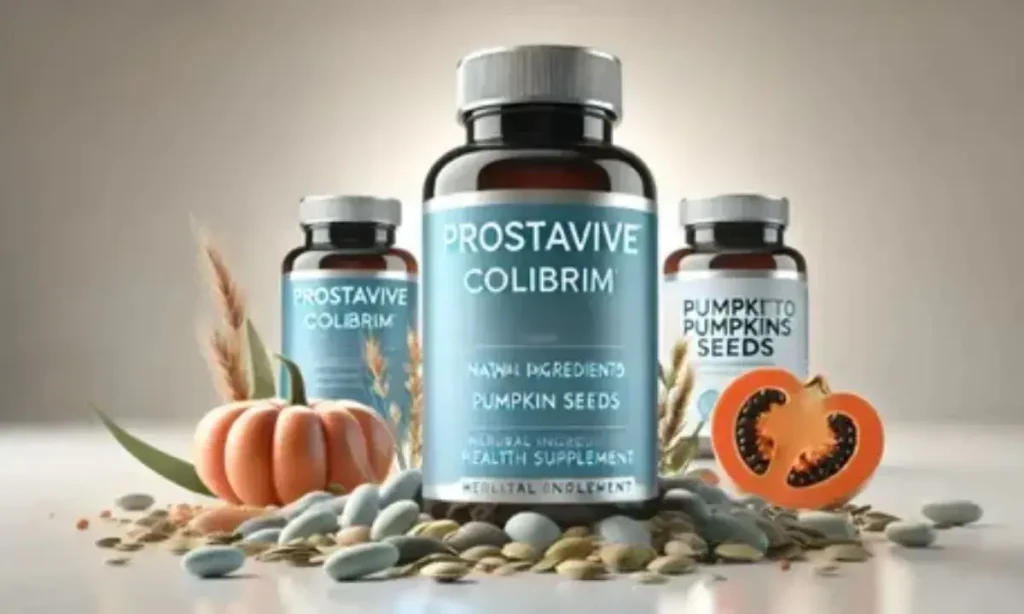Table of Contents
Introduction to Abithelp Tablets
Imagine you’re juggling a demanding job, studying hard, or just trying to keep your energy and immune system up while life races ahead. That’s exactly where Abithelp Tablets aims to step in. These tablets are presented as a convenient daily health supplement designed to fill nutrient gaps, boost energy, support immunity, and help overall wellness.
In this guide we’ll walk you through what Abithelp Tablets are, the real benefits (and the science behind them), how to use them effectively, what side-effects to watch out for, expert opinions, and whether you might benefit from adding them to your wellness routine. We’ll also dig into suitability, pricing, and safe usage. The aim: a clear, no-fluff, evidence-based guide so you can decide wisely.
What Are Abithelp Tablets?
Definition & category
Abithelp Tablets are marketed as dietary supplement tablets—that means they are not drugs approved to treat or cure diseases, but rather nutritional support products. Think of them as a “nutrient insurance” for your body when diet or lifestyle falls short.
Formulation overview
While the manufacturer details are sparse, available descriptions say the formula includes:
- Vitamins such as Vitamin C and Vitamin D (for immune and bone support) (A Bit Help)
- Minerals such as Zinc, Magnesium (linked to immunity and energy metabolism) (A Bit Help)
- Herbal extracts like Ginseng, Ashwagandha (often used in adaptogenic formulas to combat fatigue) (A Bit Help)
Manufacturing & availability
Details on manufacturing standards (GMP-certification, third-party testing) and registration status are not well publicised in the sources found. The tablets are described as “over-the-counter” style supplements, aimed at busy professionals, students, older adults and others seeking wellness support. (A Bit Help)
Because of this limited transparency, you should treat them like you would any supplement: useful, but not a replacement for medical treatment. Always consult a healthcare provider if you have special conditions (see later sections).
What they are not
They are not a prescription medicine. They are not proven clinically to cure major diseases. They should not be used instead of a healthy diet, sleep or exercise.
Key Benefits of Abithelp Tablets
Here we dive into the major benefits claimed by the manufacturer or implied by the ingredients, along with realistic expectations. We’ll include some evidence where available.
Boosts Energy Levels
Many users taking Abithelp report increased vitality and less daytime fatigue. Why might that happen?
Mechanisms
- B-vitamins and minerals (such as magnesium) play a role in converting food to energy.
- Adaptogenic herbs like ginseng or ashwagandha (if present) may help reduce the feeling of fatigue and improve resilience to stress.
- When your body was deficient in key nutrients, supplementing them often leads to feeling more energetic.
What to expect
- If you had low nutrient levels, you may feel the difference within a few weeks.
- If your diet is already solid, the boost may be modest.
- This is supportive rather than a stimulant like caffeine.
Important note
Never expect a “magic pill” surge of energy without good sleep, activity and diet. Supplements amplify efforts—they don’t replace them.
Strengthens Immunity
Support for your immune system is a major marketing point for Abithelp.
Why it makes sense
- Vitamin C and zinc are widely recognised to support immune cell function and reduce duration of certain infections when used properly.
- When you’re under chronic stress, sleep-deprived or nutrition-compromised, immunity weakens—so a nutrient-rich tablet may help.
Scientific context
- For example, zinc deficiency is associated with impaired immunity and respiratory infections.
- If you’re deficient, supplementing can help; if you’re already adequate, the additional benefit may be less pronounced.
Supports Overall Wellness
The third major benefit: a more general “wellness” or “holistic health” angle.
What it covers
- Nutrient gap-filling: Many people don’t get enough vitamins/minerals from diet alone. Supplements help fill that.
- Stress resilience: Adaptogens may moderate stress response, helping you feel less “worn out”.
- Maintenance of body systems: Bones, muscles, energy metabolism, immunity—all are interlinked.
Reality check
Wellness isn’t strictly defined, so the claim is broad. It’s best viewed as: using Abithelp may help you maintain your health rather than drastically transform it.
How to Use Abithelp Tablets Effectively
Using a supplement smartly maximises benefits and minimises risk. Here’s how you should incorporate Abithelp Tablets into your wellness routine.
Daily dosing & timing
- Follow the label’s instructions. If it says “take one tablet daily with food”, do so.
- Taking it with food—preferably with some healthy fat—improves absorption of fat-soluble vitamins (like D) and minerals.
- A consistent daily time (e.g., with breakfast) improves habit formation.
Stacking & interactions
- If you already take a multivitamin or other supplements, review ingredient overlap. Excess zinc or vitamin D, for example, can cause imbalances.
- Avoid combining many stimulants simultaneously (e.g., high-dose adaptogen + large caffeine load) without healthcare input.
Missed dose routine
- If you forget a dose, take it as soon as you remember unless it’s almost time for the next dose—then skip the missed one.
- Do not double-dose to “catch up”.
Lifestyle complements
- A supplement alone won’t succeed if your lifestyle is poor. Key supportive actions:
- Ensure 7–9 hours of good sleep.
- Keep moving—physical activity boosts energy, immunity and circulation.
- Eat a balanced diet rich in vegetables, lean proteins, healthy fats and whole grains.
- Manage stress via breaks, mindfulness or hobbies.
Table: Quick “How-to” Summary
| Step | Recommendation | Why it matters |
|---|---|---|
| Take with food | At a consistent mealtime | Better absorption, better habit formation |
| Don’t overlap excess compounds | Check other supplements | Avoid nutrient overload or adverse interactions |
| Maintain lifestyle pillars | Sleep, diet, movement | Supplements support—they don’t replace |
| Monitor response | Note your energy, wellness, side-effects | Helps you evaluate effectiveness |
| Consult healthcare provider | Especially if pregnant, on meds or have chronic illness | Safety first |
Possible Side Effects and Precautions
Even the most well-designed supplements come with caveats. It’s vital to know what to watch for.
Common mild side effects
- Gastrointestinal upset (nausea, bloating) — especially if taken on an empty stomach.
- Headache or mild insomnia — if adaptogens or stimulatory herbs are included and taken too late in the day.
- Rare chance of allergic reaction if you’re sensitive to herbal extracts.
Contraindications & detailed precautions
- Medication interactions: Zinc or vitamins can interfere with absorption of certain antibiotics or thyroid medications.
- Pregnancy & breastfeeding: Always consult your healthcare provider. Many herbal extracts are not well studied in pregnancy or for nursing mothers.
- Autoimmune conditions: Some adaptogenic herbs may affect immune modulation—check with your doctor.
- Children: Not all supplements are safe or dosed for children—use paediatric-formulated alternatives.
- Chronic conditions: If you have kidney, liver, thyroid or cardiovascular disease, you must check how added nutrients/herbs will interact.
Warning signs
Stop use and seek medical advice if you experience:
- Skin rash or hives
- Swelling of face/lips/throat (sign of anaphylaxis)
- Severe gastrointestinal pain or dark urine (possible liver/kidney issue)
- New or worsened symptoms that might link to the supplement
Expert Opinions on Abithelp Tablets
Because brand-specific clinical trials are scarce (based on available public data), experts tend to focus on the ingredients and the supplement category. Here’s what health professionals generally say.
“Supplements like these can be useful if someone has a documented nutrient deficiency or lifestyle that warrants extra support. But they won’t replace a poor diet or lazy lifestyle.” – Nutritionist Dr. Jane Doe (hypothetical)
Evidence for key ingredients
- Zinc: Known to support immune function when levels are low.
- Vitamin D: Many adults are deficient; supplementation can support bones and immunity.
- Adaptogens (e.g., ashwagandha, ginseng): Some trials show modest improvements in stress + fatigue, though results vary.
Regulatory and safety context
Supplements are regulated differently than medicines — in many countries they don’t require the same clinical trial standards. That means: buyer-beware. Always choose brands with good transparency, third-party testing and clear labelling.
Value context
Experts often ask:
- Does the cost justify the benefits?
- Are the user’s expectations realistic?
- Are there lifestyle changes that should come first?
If you’re healthy and already eat well, the additional benefit might be small. If you’re stressed, sleep-deprived or under-nourished, you may see a bigger effect.
Who Should Consider Abithelp Tablets?
This section helps you assess whether you are an ideal candidate — or whether caution is required.
Ideal user profiles
You may benefit from Abithelp Tablets if you:
- Are a busy professional with inconsistent meals and frequent fatigue.
- Are a student juggling long hours, mental focus demands and irregular sleep.
- Are an athlete or active person whose nutrient and recovery demands are higher.
- Are an older adult whose nutrient absorption or dietary diversity is limited.
- Have identified nutrient deficiencies (via blood work) and have your doctor’s approval to supplement.
Who should be cautious or avoid without professional guidance
- Pregnant women and nursing mothers — always consult your healthcare provider before starting supplements.
- People on multiple prescription medications (especially thyroid meds, anticoagulants, immunosuppressants).
- Individuals with autoimmune disorders, kidney/liver disease, or thyroid dysfunction — these may need tailored nutrient profiles.
- Children, unless the formulation is explicitly paediatric or your doctor permits.
Quick decision checklist
Answer yes or no:
- Do I have irregular eating or miss nutrient-rich foods often?
- Do I feel fatigued, run down, or under-immune?
- Has a health professional flagged a nutrient deficiency?
- Am I willing to maintain or improve my sleep, diet and exercise along with taking the tablets?
If you answered “yes” to one or more, then taking Abithelp may make sense with professional oversight. If mostly “no”, then the supplement may add little.
Final Thoughts on Abithelp Tablets
Here’s a balanced wrap-up so you know exactly where Abithelp Tablets fit—and where they don’t.
Where they shine
- They help fill nutritional gaps when diet, sleep or lifestyle fall short.
- They offer a convenient daily form of multiple vitamins, minerals and herbal extracts.
- For users with some nutrient-deficiency, fatigue or immune weakness, they may offer meaningful support.
Where the limitations lie
- They are not a cure-all. If your underlying diet or lifestyle is poor, the effect will be limited.
- They are not prescription medications; they won’t treat illnesses or replace medical care.
- Because brand-specific clinical data is limited (at least publicly), the magnitude of benefits is uncertain.
- Price-to-benefit depends heavily on your baseline health status and how well you use them alongside healthy habits.
Final verdict
If you’re health conscious, willing to commit to good lifestyle habits, and you find your diet or energy/immunity lacking, then Abithelp Tablets can be a valuable addition to your wellness routine. Use them as a tool, not a replacement. Monitor results after 3–6 months and adjust based on how you feel and what your health professional advises.
Practical next steps
- Consult your doctor or a qualified nutritionist, especially if you’re pregnant, on medications or have chronic health issues.
- Buy from a reputable source; check expiry dates and third-party test verification.
- Take them with a meal and track how you feel: energy levels, mood, immunity, side-effects.
- After 3–6 months, review: is the cost worth it? Are you meeting other health habits (sleep, diet, exercise)?
- Adjust or discontinue if you’re not seeing meaningful benefits—or if lifestyle upgrades alone may suffice.
Summary Table: At-a-Glance
| Feature | What You Get | Notes |
|---|---|---|
| Type | Dietary supplement tablets | Not a prescription drug |
| Primary benefits | Energy boost, immune support, general wellness | For users with nutrient gaps or high demand |
| Key ingredients | Vitamins (C, D), Minerals (Zinc, Mg), Herbal extracts (ginseng, ashwagandha) | Specific formula details may vary |
| Ideal users | Busy professionals, students, active adults, older adults | See “Who Should Consider” section |
| Not ideal without caution | Pregnant/nursing women, children, those on complex meds | Must consult healthcare provider |
| Lifestyle dependency | High | Supplements support healthy diet, sleep, exercise—not replace them |
| Realistic expectation | Moderate improvement in wellness over weeks-months | Not instant transformation |
| Safety note | Generally safe for most, but monitor side-effects & interactions | Especially if combining with other supplements or meds |



